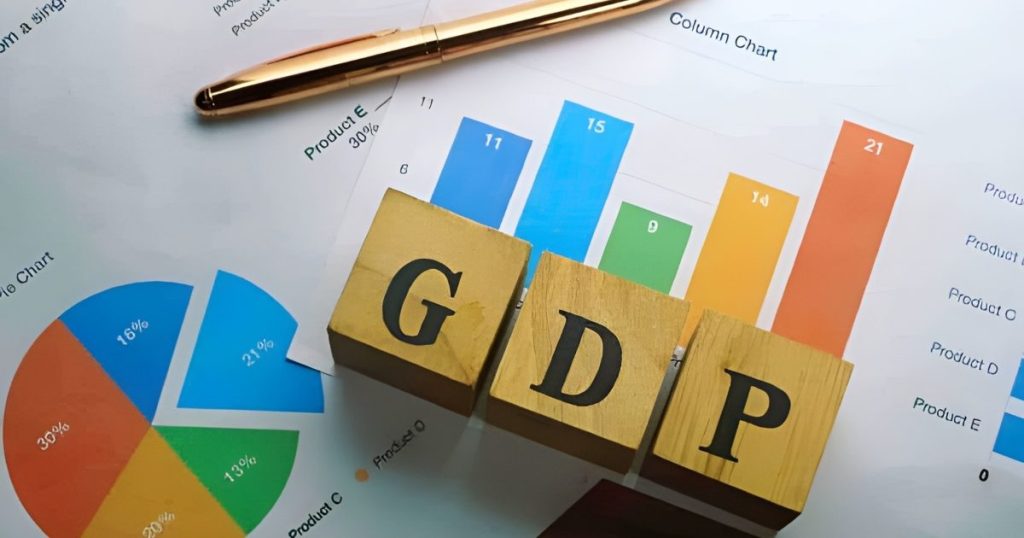The Centre for the Promotion of Private Enterprise (CPPE) has issued a comprehensive analysis of Nigeria’s recently rebased GDP figures for 2024 and the first quarter of 2025, projecting a potential $450 billion economy by the end of the year. This optimistic projection hinges on the continued recovery of the Nigerian economy from the impact of recent economic reforms, assuming no major disruptions occur. The CPPE’s analysis, however, emphasizes the need for targeted interventions to address the uneven performance across various sectors. While the overall economic picture shows growth, several sectors are contracting or even in recession, requiring focused attention to unlock their potential and ensure balanced economic development.
The rebasing exercise, conducted by the National Bureau of Statistics (NBS), revealed a significant increase in the nominal GDP, reaching N372.82 trillion in 2024, a 41% jump from the 2019 figure. This upward revision reflects a more accurate representation of the Nigerian economy’s size and composition. The growth rate for 2024 stood at 3.38%, moderating slightly to 3.13% in the first quarter of 2025, with a total output of N94 trillion. This brings the cumulative GDP to approximately N466 trillion, or roughly $300 billion, by the end of the first quarter of 2025. The CPPE’s projection of a $450 billion economy by year-end suggests a positive outlook for the remaining quarters, predicated on sustained growth momentum.
A key takeaway from the GDP data is the stark contrast in sectoral performance. While 37 sectors experienced growth, albeit at varying rates, nine sectors contracted, and three – air transport, textiles, and coal mining – slipped into recession, highlighting the need for sector-specific strategies. High-performing sectors, such as financial services, oil refining, transportation, ICT, and metal ores, deserve continued support to maintain their momentum and drive economic growth, revenue generation, and job creation. However, the CPPE stresses the importance of addressing the underperforming sectors, advocating for specific interventions to revive their growth trajectory.
The CPPE calls for special attention to be directed towards the contracting and recession-hit sectors, urging policymakers to address the underlying structural challenges, improve access to finance, tackle insecurity, and foster innovation. These targeted interventions are crucial for stimulating recovery and fostering sustainable growth across all sectors. Furthermore, the CPPE emphasizes the need to address the disconnect between the non-oil sector’s significant contribution to GDP and its relatively lower contribution to government revenue. Strengthening tax administration, broadening the tax base, optimizing non-tax revenues, and promoting the formalization of informal economic activities are identified as essential steps to improve revenue mobilization and ensure fiscal sustainability.
The dominance of the non-oil sector continues, contributing 96.03% to the GDP in Q1 2025, compared to the oil sector’s 3.97%. Despite its significant contribution, the non-oil sector faces productivity challenges. Sectors like agriculture and manufacturing, crucial for economic inclusion, job creation, self-reliance, economic security, and diversification, recorded growth rates below expectations, at 0.7% and 1.7% respectively, in the first quarter of 2025. The CPPE underscores the need for targeted interventions to unlock their full potential and drive sustainable development. These sectors, along with trade, which is a major GDP contributor, require focused attention to boost productivity and contribute more effectively to overall economic growth.
The CPPE commends the NBS for conducting the rebasing exercise despite resource constraints. The updated GDP figures provide a more accurate picture of the Nigerian economy, enabling more informed policy and investment decisions. The CPPE advocates for more frequent and timely rebasing exercises to ensure data relevance and reflects the dynamic nature of the economy. Furthermore, the organization highlights the importance of addressing the productivity challenge in the non-oil sector, urging a focus on improving revenue mobilization to match its substantial contribution to GDP. This, along with targeted interventions for struggling sectors, forms the core of the CPPE’s recommendations for achieving sustained and inclusive economic growth in Nigeria. By addressing the challenges and capitalizing on the opportunities presented by the rebased GDP data, Nigeria can unlock its full economic potential and ensure a more prosperous future.














